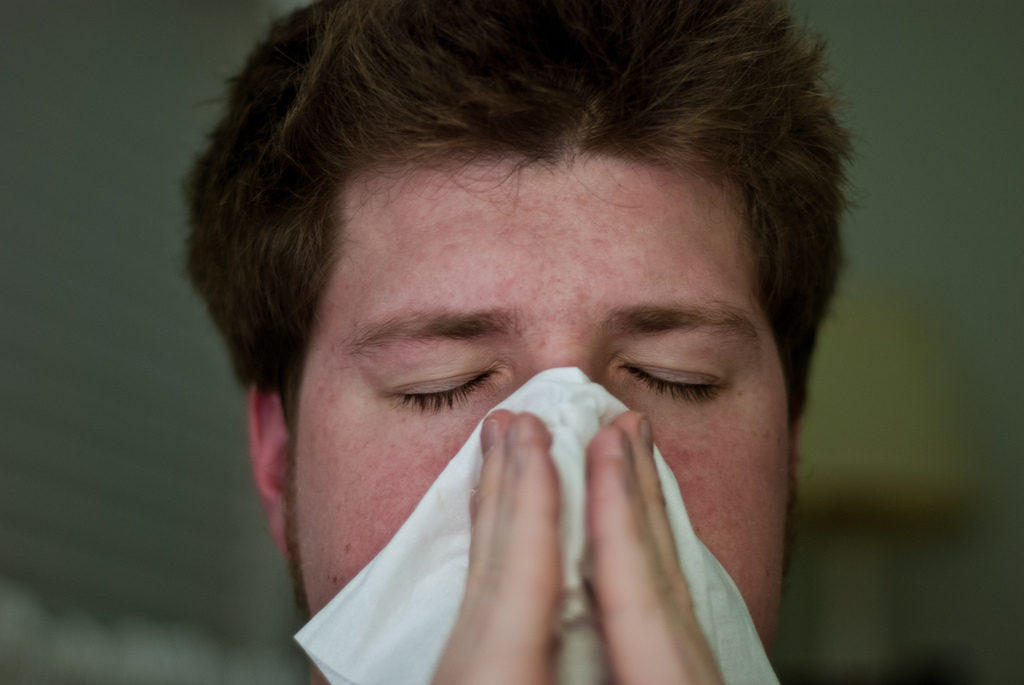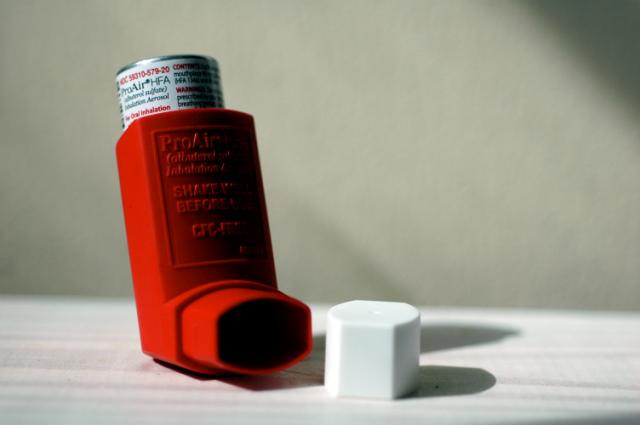Winter is a time of year many of us look forward to. The countdown to Christmas is on, there’s a chance of snow, and we can spend our weekends cozied up in front of the fire. There’s a lot to be said for the winter months. However, it’s not all good news. At this time of year, illnesses fly around. We all want to enjoy the festive season. So, here are some tips to help you keep common ailments at bay.
Common winter illnesses and how to prevent them
Coughs, colds, and flu
Coughs and colds are incredibly common during the colder months. The problem is that germs spread very quickly, and before you know it, the whole family is suffering. Coughs and colds are viral illnesses. They tend to make you experience symptoms like an itchy, sore throat, a runny nose, and high temperature. You may also find that you generally feel under the weather, and you lack energy. Flu is another common viral illness, which is spread through droplets in the air. When you cough or sneeze, always make sure that you cover your mouth. The symptoms of flu are similar to those associated with the common cold. But flu is not the same. It is caused by different viral strains, and it is more severe. If you have flu, you may be at risk of fever, muscular pain, and headaches. Flu can also make you feel very weak and tired.

Image credit https://www.flickr.com/photos/williambrawley/4195919691
There is no real cure for viral illnesses. Medicines like antibiotics, for example, are ineffective because they target bacteria. If you have a cold or flu, make sure you get plenty of rest. You can take medication to ease your symptoms. Painkillers, for example, can help to lower your temperature and prevent aches and pains. Keep your fluids up, and avoid doing anything strenuous. Try and keep warm, and avoid going out in the cold unless you absolutely have to.
It’s often impossible to prevent coughs and colds. Make sure you wash your hands regularly, and try and stay away from people if you have symptoms. If you’re at risk of flu, for example, you have asthma or a weak immune system, ask your doctor about flu jabs. If you’re older than 65 or you’re pregnant, you may also be advised to consider immunization.

Image sourced from http://www.freestockphotos.biz/stockphoto/17096
Stress
We often focus on physical health when it comes to winter illnesses. However, this is a time when stress levels tend to peak. Stress affects us all, and we can often deal with it without any need for treatment. However, it can start to become a problem. Severe stress can make you feel like you’re under pressure constantly. It can also increase your risk of anxiety and depression.
One of the main causes of stress in the winter is Christmas. We may think of it as the best time of the year. But all the planning and organization can take its toll. You may feel stressed because you don’t have enough time to do your shopping. You may be worried about affording presents. Or you may be apprehensive about dealing with family problems.
It’s often difficult to prevent stress. However, there are solutions. From writing things down, talking to friends/family about your feelings to using products like nuken strain (which is said to manage the symptoms of stress), there are ways for people to deal with stress effectively.
Often, it’s best to try and confront issues that are getting you down. If you’re worried about shopping, for example, there are ways of making life easier. Write a list in advance and order gifts online. If you’re worried about spending too much, work out a budget, and shop around. There are ways you can save money. Buying from online auction sites is often a great way of getting Christmas bargains. If you’re shopping on international sites, you can investigate package forwarding. This enables you to get the best prices without any hassles related to delivery. If money is a problem, explain to your friends and family that you haven’t got a ton of money to spend this year. They’ll understand.
Families can be complex units. For many of us, Christmas offers an incredible opportunity to catch up and spend quality time with parents, siblings, and cousins. But for others, it can be a nightmare. If you have issues with family members, try and resolve them before the holidays. Arrange to meet up, and get things off your chest. You don’t want to be arguing over the dinner table. If things are frosty, try and be civil for the sake of everyone else involved.
Identifying triggers for stress can be really helpful. But there are other ways you can tackle stress. Try doing things that take your mind off whatever is stressing you out. Take up a new hobby, spend time with friends or try exercise. It is important that you find something that can help you to take your mind off of any stress that you are experiencing, as it could help you to feel better. If you can’t find anything that helps with your stress management, it may be time to start thinking about trying something else. Some people may even decide to take something similar to this Godzilla cannabis strain, (https://www.canadacannabisdispensary.ca/product/godzilla-cannabis-strain/) if they have been unable to find anything else that works as this has been known to help with these types of symptoms. There are many things out there that you can try that can help to manage your stress levels, it’s just about finding the one that’s the most effective for you, especially during this time of year.

Image by https://www.flickr.com/photos/firesam/5242760927
Norovirus
Norovirus is a highly contagious sickness bug, which tends to be much more common in the winter. The bad news is that norovirus can be pretty unpleasant. The good news is that it comes and goes quickly. Typically, it lasts 24-48 hours. Before you’re actually sick, you may experience nausea for several hours. You may also feel tired. Sickness often contributes to dehydration. This can make you feel tired and increases the risk of headaches and pain in your joints and muscles. If you’ve had a sickness bug, get plenty of rest. Try your best to sip water frequently. Once you feel a bit better, try and eat. It may be best to stick to plain foods, like toast or crackers, for the first day or so. If you’re severely dehydrated, drink a rehydration salt solution. You can buy sachets from pharmacies.
Norovirus tends to spread quickly, especially in confined areas where there are a lot of people. If you’ve had a bug, avoid contact with others for 48 hours. Children should be kept off school, and you should stay at home rather than going to work.
To try and reduce your risk of developing norovirus, wash your hands frequently.

Image via https://www.flickr.com/photos/tinfoilraccoon/5408121921
Asthma
Winter weather doesn’t cause asthma, but it can make symptoms worse. The cold air may make you very wheezy and increase the risk of breathing difficulties. If it’s very cold or windy outside, try and stay indoors. If you have to go out, wrap up warm, and wear a scarf to cover your mouth and nose. Always take an inhaler out with you.
If you have asthma, you may have a greater risk of flu. As a result, your doctor may advise you to have a flu vaccination.

Image by https://www.flickr.com/photos/niaid/5950870440
Heart attacks
Statistically, heart attacks are more common in the winter than the summer. This is because your heart has to work harder to keep your body warm. Plunging temperatures can also increase your blood pressure. Heart attacks occur when the blood flow to your heart is restricted. They are often linked to lifestyle factors. If you’re at risk of heart attacks, try and stay indoors when it’s very cold outside.
Living a healthy lifestyle can help to reduce your risk of heart disease dramatically. Risk factors for heart attacks include high blood pressure, high cholesterol, and smoking. A healthy, balanced diet and regular exercise will decrease your chances of suffering a heart attack. You should also avoid smoking and drinking to excess. If you’ve been getting symptoms like chest pain or shortness of breath, see your doctor.
Toothache and sensitivity
When your tooth enamel wears down or your gums recede, this exposes a layer of your teeth that is very sensitive to temperature changes. Consequently, during the winter, your teeth contract in response to intense cold weather. Over time, this can lead to cracks in your teeth and cause the same type of pain that you experience when you bite into something cold like an ice cube.
You should, therefore, see a Dentist in fairfax or one closer to home whenever you experience tooth sensitivity. A dentist can determine exactly which teeth are exposed to sensitivity and can even recommend an appropriate treatment or prescribe a special toothpaste or other oral hygiene products.
Image courtesy of https://pixabay.com/en/photos/running%20sports/
Seasonal effective disorder (SAD)
Seasonal effective disorder is commonly known as the ‘winter blues.’ Many of us tend to feel more downbeat when it’s cold and miserable outside. This is a time of year when you may lack energy and enthusiasm. It can also be a very lonely time. TV adverts often feature happy families preparing for Christmas. But what happens if you don’t have a family or friends to share the day with?
Symptoms of SAD include prolonged periods of feeling sad or down. You may also be more irritable and restless than usual. You may have trouble getting to sleep, or find that you lose interest in things you normally enjoy. Many people also sleep for longer during the day and find it hard to get up. Doctors believe that SAD may be linked to changes in the body that reduce the production of melatonin and serotonin. These changes occur as a result of a lack of exposure to sunlight.
If you think you may have SAD, you should talk to your doctor. It is often possible to reduce symptoms. Your doctor may recommend a combination of talking therapies, medication and self-help measures.

Image from https://pixabay.com/en/depression-loneliness-man-mood-84404/
Winter is just around the corner, and it’s never too early to try and prevent illnesses and ailments. It may not be possible to dodge every virus out there, but there are things you can do to boost your immunity. Try and exercise regularly, and follow a healthy eating plan. Keep warm and wash your hands regularly. If you’re at high risk of flu or you have underlying health problems, ask for advice about flu vaccination. The run-up to Christmas is usually hectic and tiring, so try and manage stress. If you feel like you’re getting bogged down, try and find solutions. If you’re struggling to cope with stress or you think you may be depressed, seek help from your doctor.

We are Canada’s most trusted cannabis dispensary and discreetly deliver the highest quality products directly to your doorstep. We are always striving to serve you better! https://greenserenity.co/